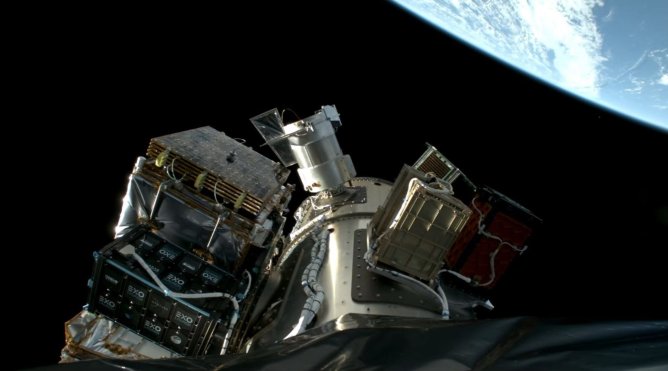Spacecoin has announced a new milestone in its effort to build a decentralized communications network that could one day compete with SpaceX’s Starlink. The company reported this week that it successfully transmitted secure data using its first demonstration satellite. This achievement validates the spacecraft’s ability to execute encrypted transactions in orbit.
The blockchain transaction was beamed from Chile to Portugal, serving as a proof-of-concept for moving cryptographic signatures and encrypted data through space. Spacecoin founder Tae Oh explained the mission’s importance in a video. He stated that the primary goal was to determine if cryptographic signatures could be sent to space intact, which is essential for building a decentralized network of communications satellites and achieving permissionless connectivity.
The satellite, named CTC-0, was built by Endurosat and launched on a Falcon 9 rideshare mission in December 2024. It is the first in a series of prototypes planned by Spacecoin. The next three satellites, known collectively as CTC-1, will be slightly larger, with even bigger spacecraft to follow for improved performance.
This test occurs as Starlink continues to strengthen its position in the satellite broadband market. With its vertically integrated launch business, SpaceX has deployed over 8,000 satellites and gained millions of global customers. A handful of competitors, including Amazon’s Kuiper, are also positioning themselves in the market.
However, Spacecoin’s approach is distinct, based on tokenized access and decentralization. The company plans to launch Starmesh, an encrypted internet traffic network designed to maintain internet freedom while enabling safe, untraceable browsing and access to decentralized web services.
Founded in 2022, Spacecoin was spun out of Gluwa, a firm founded by Tae Oh that provides financial services to emerging markets. Spacecoin’s internet infrastructure would operate on the Creditcoin blockchain, allowing customers to pay internet fees and conduct other financial transactions.
The company stated that unlike terrestrial networks, which can be vulnerable to outages, censorship, and high costs, a decentralized satellite-based system can deliver internet access that is global, censorship-resistant, and independent of monopolies.

